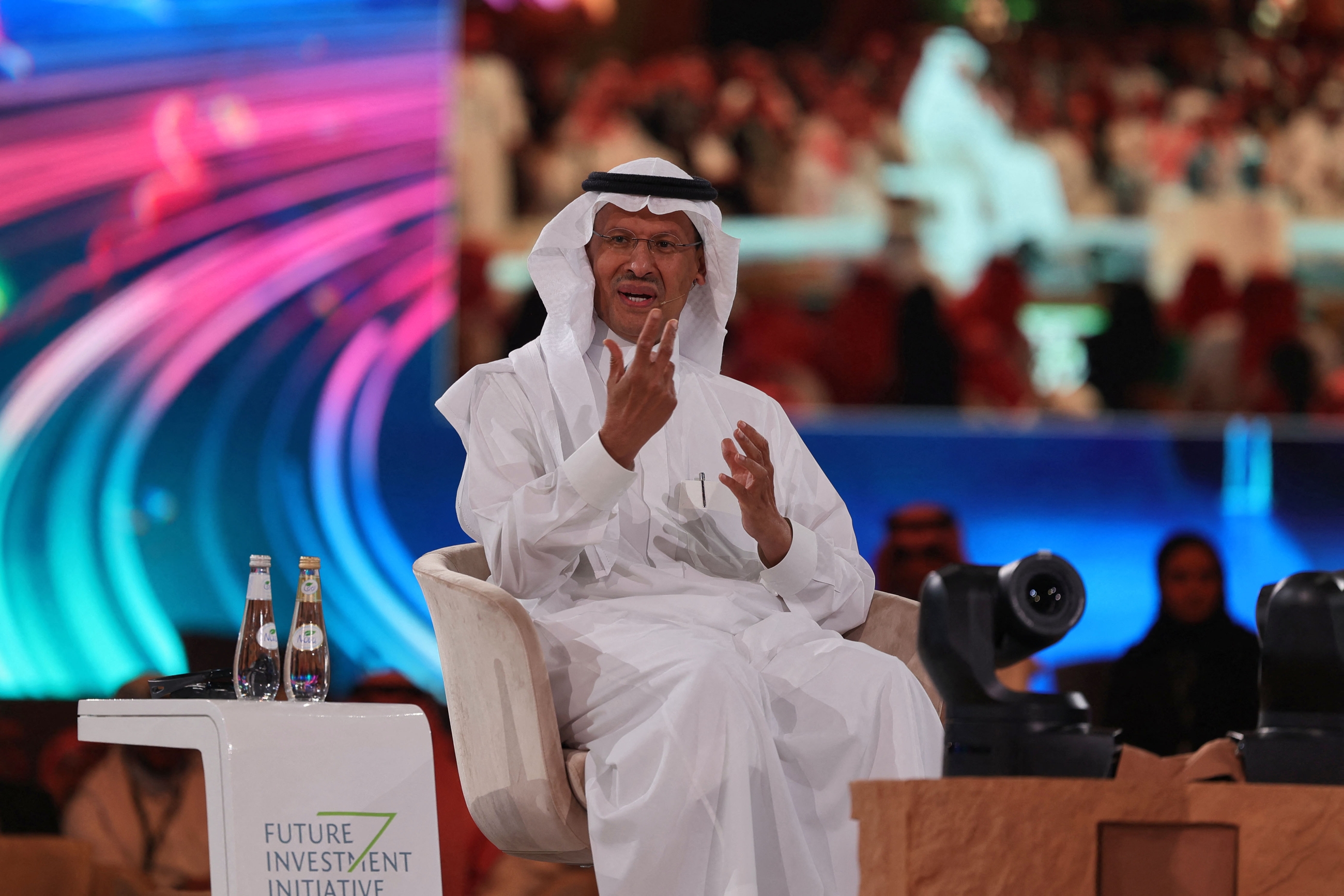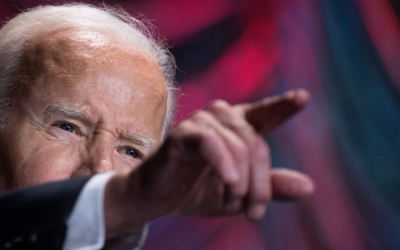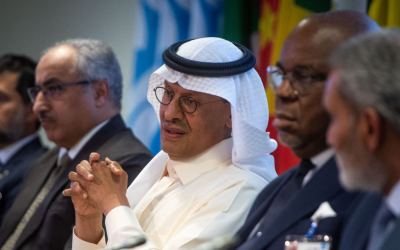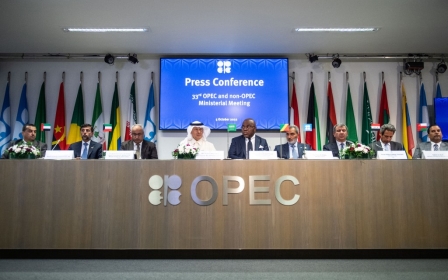War of words escalates between US and Saudi Arabia over Opec+ cut

Saudi Arabia's "positive" steps towards Ukraine are not enough to make up for the kingdom's backing of an Opec+ decision to cut oil production, US Secretary of State Antony Blinken said on Wednesday.
The Opec+ group of oil-producing countries infuriated US President Joe Biden when it decided to slash production by two million barrels a day starting in November, putting pressure on consumer prices ahead of US midterm elections in November while boosting revenues for Russia.
The Biden administration publicly accused the Saudi-led Opec+ group of "aligning" with Russia. The kingdom has defended the decision to cut production as necessary to spur investment in fossil fuels and support prices amid fears of a slumping global economy.
'We're looking at it from a Western point of view and the rest of the world needs to adapt. No, it doesn't work like that'
- Amin Nasser, chief executive of Saudi Arabian Oil Co
Blinken acknowledged that Saudi Arabia had since voted with the United States to condemn Moscow's annexations of Ukrainian territory and has announced $400 million in humanitarian aid for Ukraine.
"So these are positive developments. They don't compensate for the decision that was made by Opec+ on production. But we take note of that," Blinken said at a Bloomberg News event.
New MEE newsletter: Jerusalem Dispatch
Sign up to get the latest insights and analysis on Israel-Palestine, alongside Turkey Unpacked and other MEE newsletters
Blinken's comments come as Saudi Arabia hosts its premier investment conference - dubbed "Davos in the Desert".
The kingdom snubbed US officials from attending the event, which has previously been attended by leading US businesspeople including JP Morgan's Jamie Dimon, Blackstone co-founder Stephen Schwarzman, and David Solomon, head of Goldman Sachs.
Saudi officials have used their platform at the event to counter the US narrative that it had betrayed Washington with the production cut.
'We are for Saudi Arabia'
Amin Nasser, chief executive of Saudi Arabian Oil Co, the state-owned energy giant, echoed recent criticism from Qatari officials that blamed rising energy prices on largely Western efforts to cut investment in fossil fuels and to push green energy alternatives.
"We're looking at it from a Western point of view, and the rest of the world needs to adapt. No, it doesn't work like that," Nasser said.
In pointed remarks, Prince Abdulaziz bin Salman, the kingdom's energy minister, also blasted the notion that the kingdom had to justify the Opec+ decision to the US.
"I keep listening, are you with us or against us? Is there any room for 'We are for Saudi Arabia and for the people of Saudi Arabia?'" he said to applause at the investor conference.
Asked about getting the decades-old partnership between Riyadh and Washington back on track, he said: "I think we as Saudi Arabia decided to be the maturer guys and let the dice fall."
The Opec+ decision came despite heavy lobbying from the US against the move, and after Biden's visit to the kingdom in July. Biden, who faced heavy criticism from members of his Democratic Party over the trip, cast the visit as necessary to obtain an oil production increase from Saudi Arabia.
Biden as a candidate vowed to shun Riyadh over human rights abuses, including the killing of US-based journalist Jamal Khashoggi in the kingdom's Istanbul consulate.
'Nothing in the analysis'
On Wednesday, Blinken reiterated that Saudi Arabia had made "the wrong decision" to back the production cut, and dismissed its argument that it was responding to market dynamics.
"There was nothing to suggest in the analysis that we had - and it was shared with the Saudis - that we were looking at prices plummeting in ways that would be problematic for them," Blinken said.
The administration has been left scrambling to limit the fallout of the Opec+ cut ahead of midterm elections, in which Biden’s Democrats are expected to perform poorly. The administration has already tapped the US strategic oil stockpile for 15 mn barrels of crude.
"Losing emergency stocks may be painful in the months to come," Prince Adbulaziz said on Tuesday, in a veiled warning that governments were trying to manipulate energy prices.
US gasoline prices have remained relatively flat since the Opec+ cut. According to AAA, the national price for a gallon of gasoline stood at $3.76 on Wednesday, up slightly from last month's $3.72.
Blinken again said that the Biden administration was reassessing its relationship with Saudi Arabia, without giving details.
"We're going to do it in a very deliberate fashion, in consultation with members of Congress to make sure of this, that the relationship better reflects our own interests," he said.
Middle East Eye delivers independent and unrivalled coverage and analysis of the Middle East, North Africa and beyond. To learn more about republishing this content and the associated fees, please fill out this form. More about MEE can be found here.






